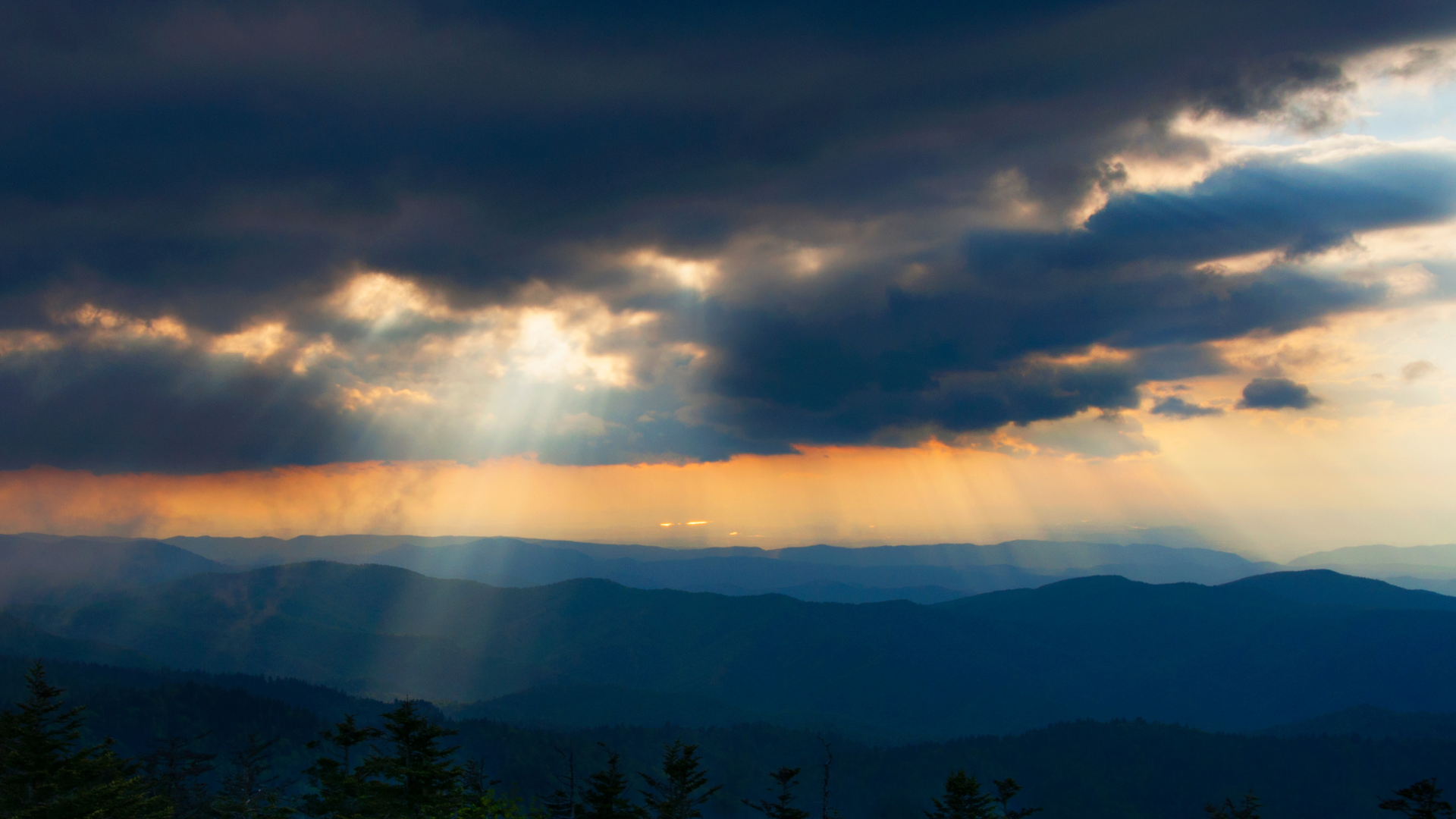TO FORGET NO MORE
What is it we are to remember in this season of celebration and pageant? Annually, amidst all the hype of commercialism, the apparent Christian world presents the image of a helpless child, couched in all the stories of human heroism and selflessness, hoping to bring out the best in us amidst rejoicing and peace. This, of course, always leads up to the image of a celebration around an over-decorated evergreen with happy people drinking nog and grog, watching children tear into a pile of brightly wrapped indulgences, followed a week later by a night of sparkly over-indulgence. Does anyone find it sad that as soon as Christmas day is done almost everyone forgets it and moves forward toward the next celebration?
Though not too troubling, I’ve always found it somewhat a reversal of priorities that we of the faith revere this day, Christmas, or the coming of the anointed child, above the day, Easter, or the sacrifice of the anointed one to atone for the sins of the world. Yet it is that way, and despite all of the criticism of the secular world, and the constant lobbying to remove Christian imagery, the focus persists, and the world takes notice, both critically and curiously. But what of us? Throughout the Old Testament God allowed for special days, and occasionally years, of jubilation and celebration for the purpose of remembering critical changes and events in the history of His chosen people. Some of these occasions were for the express purpose of setting right old grievances and wrongs, and to recall the relationship between God and His people.
So, in this age wherein the faithful are spread all over the world, what are we to recall and what are we set right? After all, what is God to us, and what are we to God? Right now, a great deal of the world’s population is in the midst of Advent, or Christmas, celebration and preparation for the upcoming New Year celebration. At the same time another large part of the world’s population is conducting business as usual, whether in sweaty labor or an air-conditioned office. And, there is a small but growing number that is greatly irritated that any of these things is taking place, offended that there is joy or satisfaction anywhere in the world. They would, by either legal or illegal means, political power or terrorism, be satisfied only when anarchy and desperation rule the world. If God walked in our midst today, how would he react? If Jesus dropped in for a visit would we be too blind to see him?
I recall a vivid dream I had several years ago. The next morning I wrote down my recollection, and although I’ve misplaced my notes the memory of this dream has always persisted.
I somehow found myself at a hospital, visiting, which was not a peculiar event for me considering my years as a Chaplain. I found myself in a gray corridor with weak lighting, and needing to wait I sat down on an old wooden bench. While waiting, a very old man approached to also sit down. I noticed that he looked weary and walked with a cane, his overcoat was once luxurious but over the years had become worn and rumpled. As he turned to sit it appeared that the bench, straight-backed and hard, caused nearly as much pain as standing seemed to. He sat silently for a moment as I uncomfortably gazed up and down the corridor, which now seemed to stretch on and on, into the darkness, with door upon door and room upon room.
When he finally turned to speak, he removed his hat and apologized for not greeting me when he approached. He said he had been to visit his children, all apparently in the hospital. Yet, he said with a great sigh, they had all forgotten him, their lives had moved them away from home many years ago and the memories of their childhood had faded away. At that point I turned to him, sensing his grief and weariness, momentarily putting aside my own preoccupation with my duties, and as he noticed my interest in his story, he continued.
He related the memories of his past, of raising his large family, and of how they all finally left home with promises of bright futures and personal successes. But through the years these turned into blind ambition, wealth seeking, and empire building. Their individual quests for power and recognition finally took their toll, and they all found themselves in this hospital, sick and dying. He had all their names and still brightly remembered all of their faces. He had come with great anticipation, hoping for a joyous reunion, and to invite them all to his waiting home, to live and recover in the hospitality of his love for them, and to share once again in his wealth. But as he entered room after room he was rejected as a stranger, each of his children refusing to admit to his own frailty and sickness, each still pursuing the goal of personal achievement. They did not remember, nor did they wish to remember, the father who had nurtured and provided for them as children. They were blinded, and would ultimately be betrayed, by their own ambition.
And so he sat, this sad old man, now facing the grief of his own abandoned life and the isolation that each of his children has chosen for himself. He became silent again, yet I continued to study him. I noticed his face lined with the scars of character, and his hands worn from years of personal labor. He turned his hat in his hands and grasped his cane to rise, and I put my hand on his shoulder to ask him to stay for a few moments more. I thought to myself what grace this old man has to share his story in such openness with a stranger like me. And as my hand rested on his shoulder I realized that I had come to visit my own brothers and sisters, and that I too had forgotten my childhood and my own father. As his face slowly turned back toward me and I once again saw his eyes, I felt the rush of memory come upon me. In weakness I fell to my knees as I realized that it was my own father sitting in front of me, that I too was one of the children on his list. Through my tears I asked if, after all these years, he might consider taking me home with him, to once again enjoy the comfort of his care.
Now this was only a dream of mine, and as such only has the value of a dream. But it has stuck with me and remained clear, unlike most dreams, which fade. Therefore it is important to me, and I take some risk in sharing it with others. But I shall. For me, I see the immense sadness and grief which God has borne over the centuries for all those who are now lost forever, for those who have forgotten Him. I also imagine the great joy at the returning of even one of His lost children. Perhaps it is arrogant of me to relate such a dream, or even to have such a dream. After all, how could God, in all his greatness and glory, consider stooping to one such as I, and moreso, to ever present Himself in such a feeble and broken state? And yet Jesus, the Anointed One, whom we claim to worship, was burdened with the weight of the whole world’s sin, and filled with grief over those who were lost: he was a man of sorrow and acquainted with grief. . .He was despised and we did not esteem him. (Is. 53:3)
This Jesus, who is portrayed at this season as an innocent, helpless child, upon whom gifts were bestowed, is the same one who was later rejected by his own, tortured by strangers, and died in shame for the sake of his children. In death he opened the doors of his house and willed his wealth to all those who then, and still today, turned their backs on him. All we need to do is remember him for who he is. And as for me, I will forget no more. May his face be ever present in my memory and in yours.
Peace.
Bill Z


Church schedule
SUNDAY
Sunday School: Sunday 9:30 AM
Fellowship and Snack Time: 10:30 AM
Morning Worship Service: 10:45 AM
WEDNESDAY
Family and Youth Games and Fellowship: 3:00 PM
Light Dinner: 5:30 PM
Evening Bible and Church History Study: 6:30 PM
Contact Us
Address:
1856 Stover Ln, Myrtle Point, OR 97458
Location
© 2024 All Rights Reserved Myrtle Point Baptist Church









